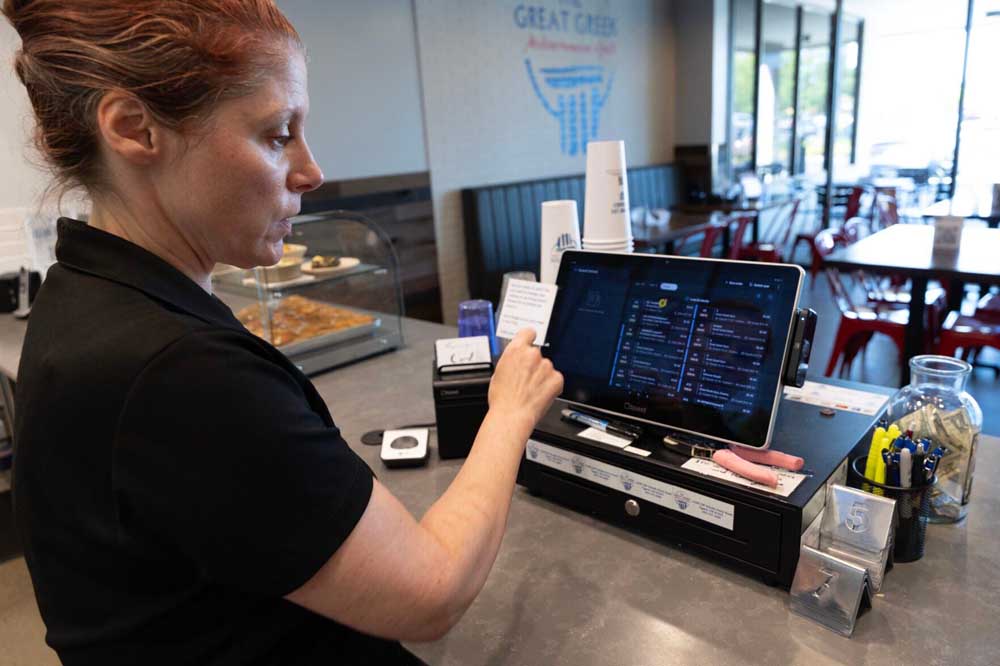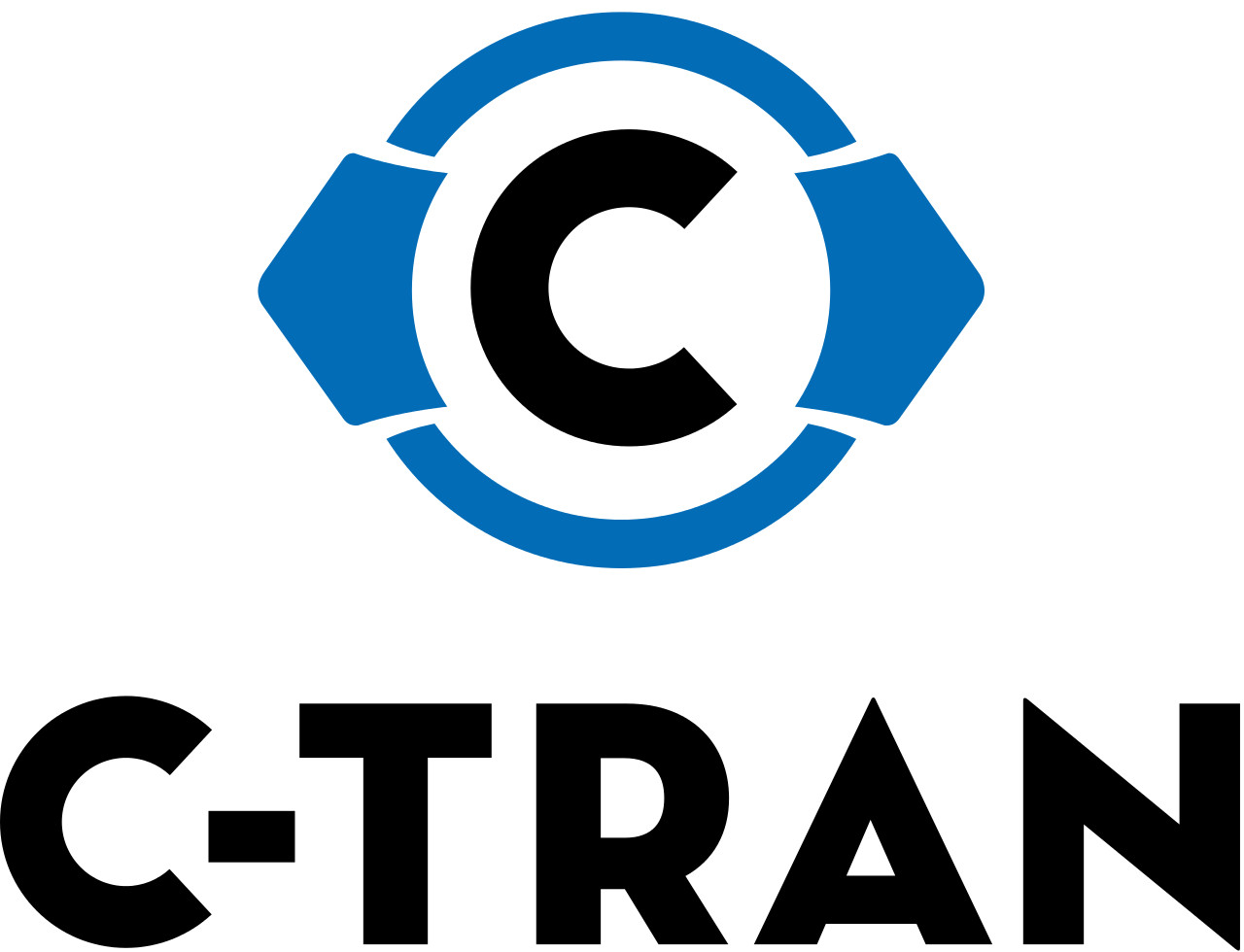Junk fees on food: Tigard restaurateur, legislators push to oust hidden fees for food ordering/delivery
Published 4:15 pm Tuesday, August 6, 2024

- Brenda Schmidt, owner of The Great Greek Mediterranean Grill, describes how she utilizes the the cloud-based restaurant software company Toast when taking food orders at her restaurant.
When Brenda Schmidt opened her The Great Greek Mediterranean Grill restaurant in Tigard last November, little did she know that much of her profit would go into what she says are hidden service charges attached to many mobile food and delivery providers.
Trending
What she quickly found out is that if she wanted to be seen by many restaurant seekers on such popular mobile platforms as DoorDash or Uber Eats, there were extensive unknown costs associated with those providers. Many referred to those tacked-on costs as “junk fees” whose purpose often isn’t immediately apparent.
“So, our sales can be affected. They can take 40 to 50% of our sales,” said Schmidt, a Beaverton resident and former surgeon for the U.S. Navy.
On Monday, Aug. 5, Schmidt was joined by U.S. Rep. Andrea Salinas, a Democrat from Tigard, and U.S. Rep. Pete Aguilar, a California Democrat representing House District 33, at her Scholls Ferry Road restaurant to discuss legislation that would make changes and bring some transparency for such charges. They were joined by Tigard Mayor Heidi Lueb.
Trending
Who gets the money?
Schmidt told the legislators that a person almost needs to be a forensic accountant to determine what all the fees are for.
She said when she tried to compare the mobile restaurant platforms to the Greek restaurant’s own ordering systems, “I don’t think they communicate well or accurately, and I think they find ways to add in stuff that I’m going to pay for. If someone can assure me (it’s) legitimate, that’s fine but right now, I can’t …”
Salinas said many Americans have food apps on their smartphones, noting that the average American orders takeout about once a week, spending about $33 on that order.
What they don’t know, she said, is that about 35% of that cost is in hidden fees.
“Yeah, that’s right, less than two-thirds of what you’re actually paying for delivery is going back to support the restaurant and its employees, just like this one,” Salinas said. “The rest is going back to these third-party companies, and many consumers … they don’t realize that they’re paying extra for probably nothing.”
‘Eating away at the margins’
Salinas said mobile food delivery companies are “making a killing” to the tune of billions of dollars each year.
“They’re eating away at the margins of local restaurant owners like (Schmidt), which in turn forces restaurants to raise prices just to keep up, and then that in turn eats away from the family budget,” Salinas said.
But the U.S. representative emphasized that those hidden fees are not limited to food, and include booking airline flights, reserving hotels and purchasing concert tickets.
“It’s a vicious cycle that benefits big corporations at the expense of a lot of working families and small businesses,” Salinas said.
As a result, she is a co-sponsor of the Junk Fee Prevention Act, which would increase transparency and save folks money by prohibiting certain businesses from what she called “dishonest price advertising.”
‘Working family don’t get gouged’
“Two provisions from this bill, including new transparency requirements for online ticket platforms and short-term lodging providers, have already passed the U.S House of Representatives, and I proudly voted for both of these,” she said.
In addition, a new law in Oregon (Senate Bill 1801) caps fees charged by third party apps such as GrubHub, Uber Eats and DoorDash, said the federal legislator.
Rep. Aguilar said those who order dinner from a local restaurant shouldn’t be burdened by higher costs and that junk fees make it harder for families to support small businesses, something he said, is the “lifeblood of our local communities and economies.”
“We want to make sure that working families don’t get gouged and that everyday Americans know what’s at stake,” he said.
The local impact
Mayor Lueb said the city of Tigard has 3,400 businesses, many of them being struggling restaurants.
“And when they get orders from all of these apps, it really is cutting into their business and they’re not able to break even. They’re even losing, just to be able to get their name out there and get that recognition,” Lueb said.
Schmidt said that approximately 45% of her sales are through third-party apps.
In addition, she said hidden fees could reach a point where it’s so bad that she may have to shut off the apps and reduce employees just to save costs.
“And that’s not a good option for us obviously,” Schmidt said.
Still, she said one option is to go directly to The Great Greek Mediterranean Grill website, ordering directly from them and saving money in the process.
“I think if more people knew that was an option — take care of your local businesses and take your local restaurants — more of us will survive and we’ll keep our doors open,” Schmidt said.






